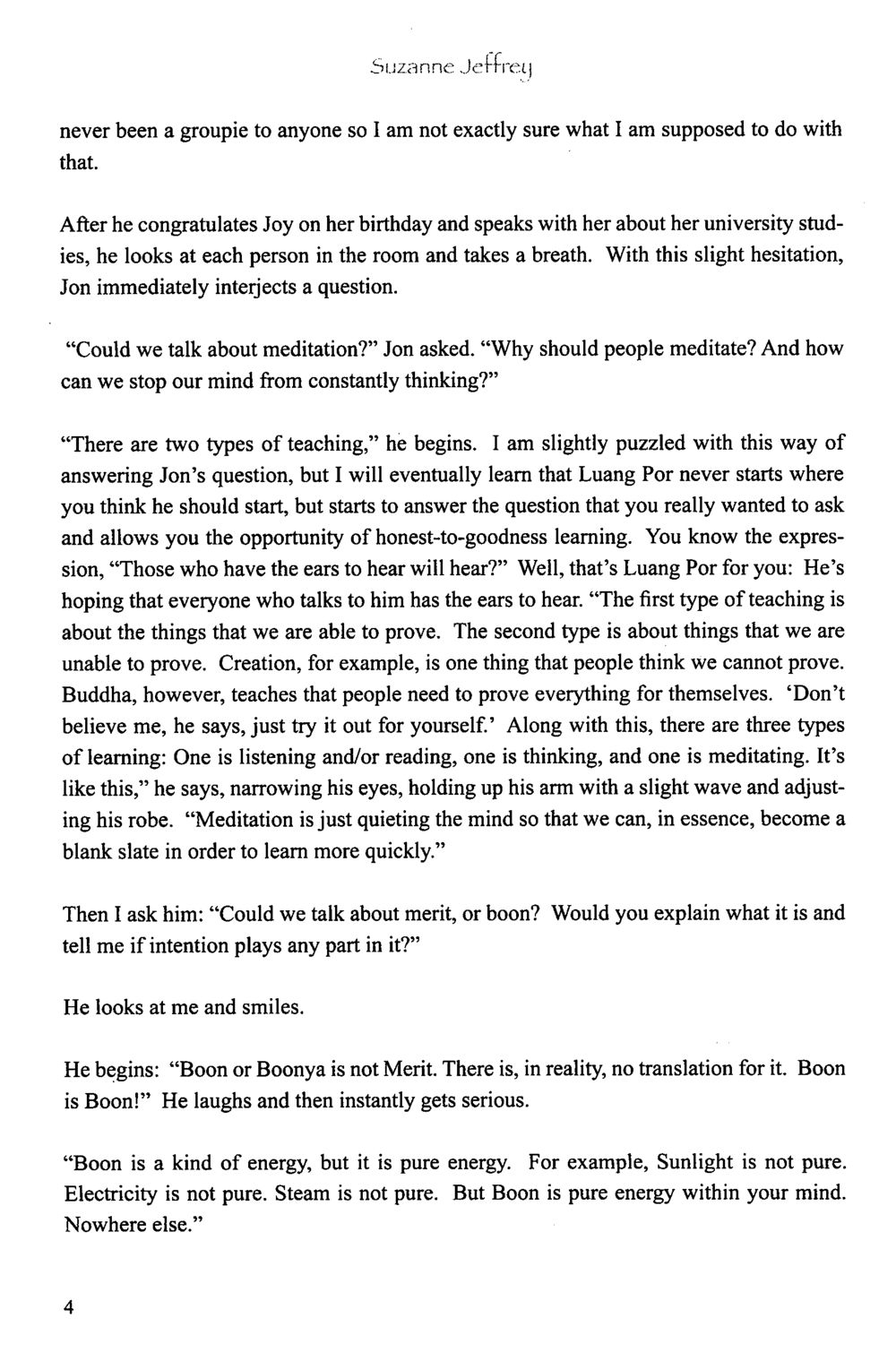Understanding Meditation and Merit : หน้า 13/164
The Meeting with a Dhamma Master : หน้า 13/164 Explore the teachings of Luang Por on meditation and the concept of Boon in this insightful dialogue. Find out how inner energy plays a role in personal growth.
0 ครั้ง

สรุปเนื้อหา
This passage features a conversation about meditation and the concept of Boon as explained by Luang Por. He emphasizes that meditation involves quieting the mind to facilitate learning and understanding. Boon, or Boonya, is described as pure energy residing within the mind rather than something that can be easily translated or compared to other forms of energy. Luang Por encourages experiential learning where individuals should explore and prove concepts for themselves rather than merely believe. The discussion uncovers the essence of meditation and the significance of intrinsic energy in personal development. For more insights, visit dmc.tv.
หัวข้อประเด็น
-Meditation
-Concept of Boon
-Personal Growth
-Teachings of Luang Por
-Types of Learning
-Mindfulness
ข้อความต้นฉบับในหน้า
หน้าหนังสือทั้งหมด




































































































































































